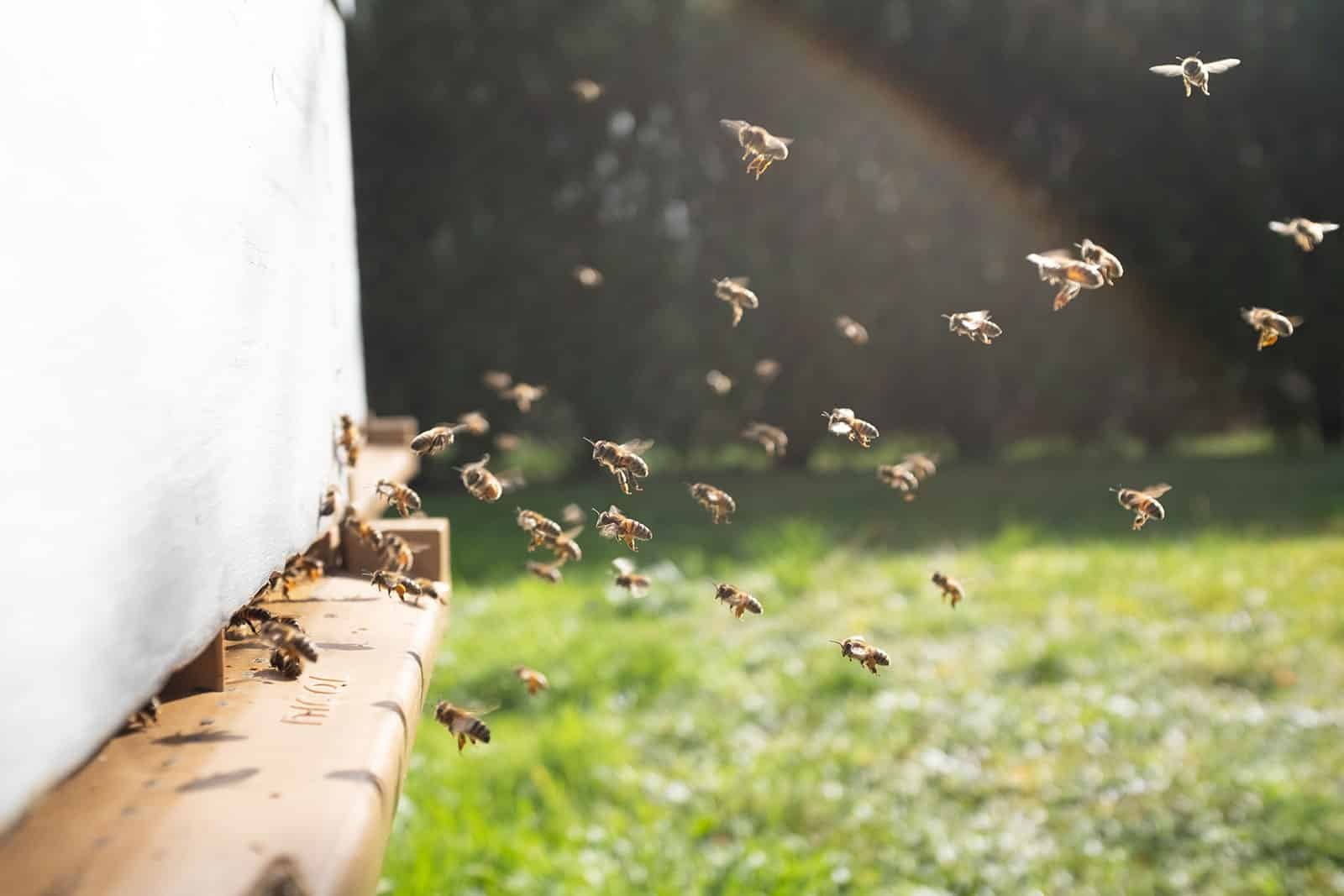Why are bees important?
Learn the answer behind that question and other important facts about bees.

Our Manchester tree surgeon explains why bees are so important
You know what bees look like and you have probably been buzzed a time or two by one. But do you know how important they are when you see them in your yard or garden? Here is a look at the answer behind that question and other important facts about bees.
Bees are the world’s best pollinators
Pollination is a crucial activity as it ensures that plants that produce fruit and vegetables are fertilised. While pollination is accomplished in many ways, bees are capable of large scale pollination.
Bees are important to us as we would not have access to as many different foods grown naturally in gardens, farms, and orchards without the assistance of bees. This is why we all need to work together to save them globally.
Bees produce honey
Honey bees are the only type of bee to produce honey, which has many benefits. Not only does it taste good, but honey also contains medicinal properties and is considered to be “energy dense” which is good for us as well.
Why are bees disappearing?
There are many threats to bees that have impacted on their global population. Several of the threats to bees are also threatening our trees and woodland areas. Therefore, saving bees will save these things as well.
Habitat loss – Invasive farming methods and increasing urban developments have contributed to habitat loss for bees. Without trees to nest in and meadows with flowering plants, bees are struggling to survive.
Pesticide use – Toxic pesticides are designed to kill pests. However, due to the toxicity of these products, they harm bees. When plants are sprayed with pesticides that bees pollinate, they absorb the chemicals which can impact the nervous system of the bees.
Climate change – Extreme weather is another contributing factor to the decline of bee populations. It changes nesting behaviour and alters seasonal timing, which can mean flowers blooming earlier than normal or not at all.
Parasites and diseases – The varroa mite is a parasitic mite that clings to the back of honey bees. As time passes, the mite will pass diseases and viruses to the bee. They will result in draining the strength of the bee until it succumbs to the disease or virus.
Invasive species – Non-native insect species can cause problems with bee populations. An example is an Asian hornet which eats honey bees, making it a huge threat to bees.
How can we help to save the bees?
There are several ways you can get involved and help save the bees. Here are a few suggestions:
Bee-friendly plants – ask your local garden centre what flowering plants are considered bee-friendly and fill your garden and yard with them. Bees will be attracted to them and in addition to providing them with a food source, your plants will be pollinated.
Put bee shelters in your garden – bees need a place to shelter and nest and hibernate. You can help with this vital piece of the puzzle but putting up bee and insect houses. Check at your local garden centre or online for what works best for bees.
Quit using pesticides – There are other ways to rid your garden of insect pests that won’t harm bees. Again, your local garden centre can help and you may also find do-it-yourself solutions online that will produce the same results.